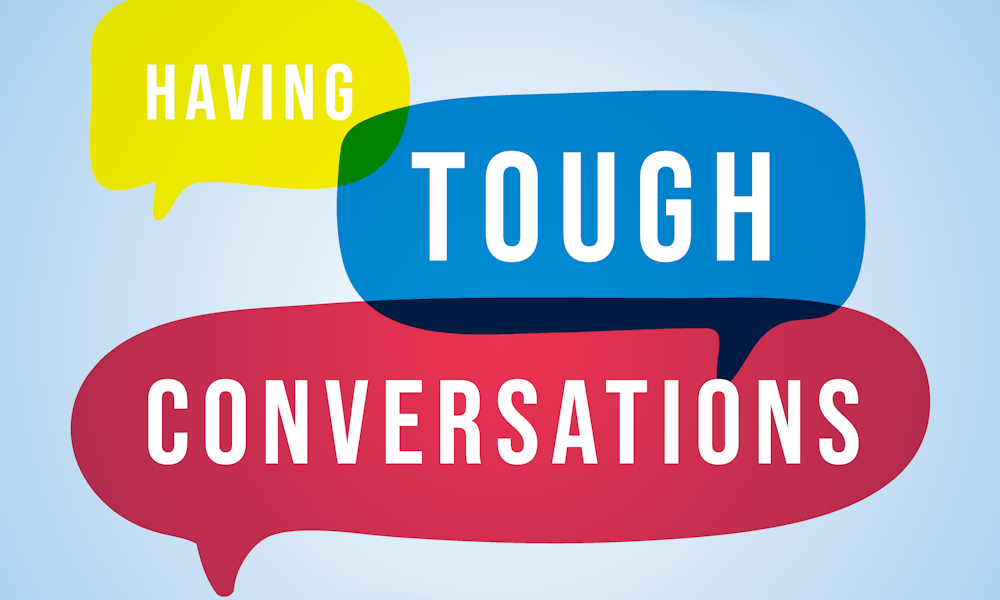
Having Tough Conversations
Conflict. It’s seemingly everywhere. Sometimes it’s rude comments on social media or frustrating conversations with family and friends. But what do we do with it all? Do we say something, do we post about it to our friends or do we just move on?
Conflict. It’s seemingly everywhere. Sometimes it’s rude comments on social media or frustrating conversations with family and friends. But what do we do with it all? Do we say something, do we post about it to our friends or do we just move on?
The Jesus Way
As Catholics, we believe that God not only made us with emotions to pay attention to in tough situations, but Jesus also encourages us to have difficult conversations to bring about healing, holiness and growth.
In the Gospel of Matthew, Jesus instructs us that when a “brother sins against you, go and tell him his fault between you and him alone.” (18:15) Jesus goes on to say that if they listen, it's resolved, but if they don't, bring a mediator to help in the conversation. If you and the other still haven’t resolved the issue, Jesus says to turn to the Church. If that resolution still doesn’t happen, Jesus tells us to set clear boundaries with the person. As we follow Jesus’ advice in the face of conflict, here are a few things to consider when having tough conversations.
I feel [insert here]
When having difficult conversations with friends, parents, cyber bullies and perhaps even mentors in our lives – coaches, teachers, youth ministers or priests, we can start with our emotions. Your emotions reveal values that God has written on your heart. Jesus had many emotions, and he shows us their value in living a holy life. When having to share something difficult, we can first express the emotion for ourselves by asking, “How does this make me feel?” We can then communicate how we feel using this handy-dandy formula of “I feel [insert emotion here].”
Action vs. person
When using “I-feel” statements in tough conversations, we can follow up the emotion with behavior-specific evidence and examples such as, “I feel frustrated when … comments are made about my weight.” Staying behavior-focused and avoiding the words you, never, always, or any other fighting words, helps to ensure the other person does not become defensive, and helps them understand you’re not attacking their personhood. Taking this approach also helps the person you are speaking with understand that as a fellow child of God, they are not the problem, but a behavior of theirs is affecting others around them and that they are being called to be more loving out of love and respect.
Go to timeout
While timeouts as a kid are usually a bad thing, in difficult conversations they can be a lifesaver. If a talk with someone is going south or getting heated, take a time out. Let the person know, “I need [insert time frame here] to cool down.” Timeouts are a way to avoid saying something you’ll regret, and to recollect your thoughts and emotions to better communicate the truth with love to your brother or sister in Christ.
Not alone
The reality is that we encounter brokenness and hurt in our lives on a regular basis. At the same time, God is giving us real guidance, tools and grace to navigate these tough conversations and situations for our good and the good of those around us. Just as God works through the mess of the cross, God is working in the difficult, ugly and messy situations in your life. God is longing to help you have tough but honest conversations with others, to share your feelings with love and call others to holiness and growth as you strive for it yourself. When tough conversations need to happen, don’t go it alone. Remember to invite the Holy Spirit in and to take it step by step, to speak the truth of your experiences and the Gospel with love to those around you!
Adam Cross is a licensed marriage and family therapist in California, and he worked as a youth minister at his local parish for 8 years. Adam loves to integrate the Catholic faith into his therapy practice.



